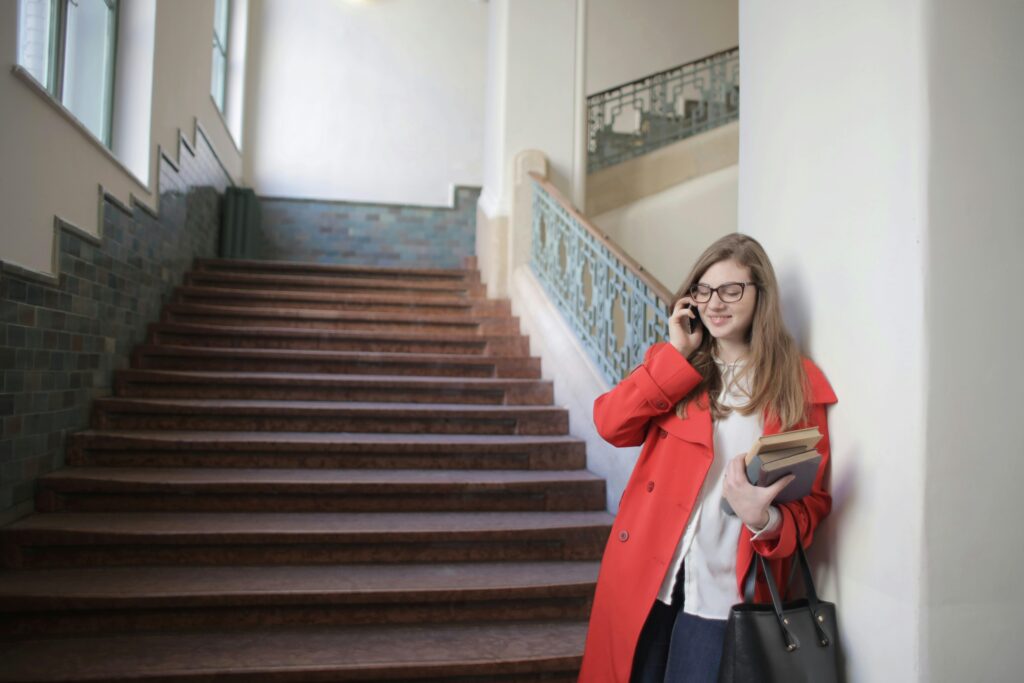Introduction
Ludwig-Maximilians-Universität München (LMU Munich or simply LMU) stands as a cornerstone of higher education and research excellence in Germany and beyond. Founded in 1472, LMU has a storied history of academic prowess, intellectual discovery, and cultural heritage. This article provides an in-depth exploration of LMU Munich, tracing its origins, examining its current academic offerings, highlighting its groundbreaking research initiatives, exploring campus life, discussing international collaborations, and showcasing its profound impact on education and society.
History and Founding Principles
Founding and Evolution
LMU Munich was founded on June 11, 1472, by Duke Ludwig IX of Bavaria-Landshut, with papal approval granted by Pope Sixtus IV. Originally established as a Catholic university, LMU aimed to promote education in theology, philosophy, law, and medicine. Over the centuries, the university expanded its academic spectrum, embraced scientific inquiry, and evolved into a leading research institution renowned for its academic rigor and intellectual freedom.
Growth and Development
From its modest beginnings, LMU Munich grew exponentially in both size and stature. It attracted prominent scholars, intellectuals, and students from across Europe and beyond, contributing significantly to advancements in various fields of knowledge. Today, LMU continues to uphold its tradition of academic excellence while embracing innovation and interdisciplinary collaboration in a rapidly changing global landscape.
Academic Excellence and Diverse Programs
Faculties and Departments
LMU Munich is organized into numerous faculties and departments, offering a diverse range of undergraduate, graduate, and doctoral programs. These faculties include:
- Faculty of Catholic Theology
- Faculty of Protestant Theology
- Faculty of Law
- Faculty of Business Administration (Munich School of Management)
- Faculty of Economics
- Faculty of Medicine
- Faculty of Veterinary Medicine
- Faculty of Psychology and Educational Sciences
- Faculty of Philosophy, Philosophy of Science and Study of Religion
- Faculty of History and the Arts
- Faculty of Languages and Literatures
- Faculty of Cultural Studies
Each faculty at LMU Munich is committed to fostering academic excellence, critical thinking, and ethical responsibility among its students.
Undergraduate and Graduate Programs
LMU Munich offers a wide array of bachelor’s and master’s degree programs designed to meet the diverse academic interests and career aspirations of students. These programs blend theoretical knowledge with practical skills, preparing graduates for successful careers in academia, industry, government, and beyond.
Doctoral Programs and Research Opportunities
For doctoral candidates, LMU Munich provides extensive research opportunities through structured Ph.D. programs and collaborative projects with leading research institutions and industry partners. Doctoral students benefit from state-of-the-art facilities, interdisciplinary supervision, and access to global networks, enabling them to pursue groundbreaking research and make significant contributions to their respective fields.

Research Excellence and Innovation
Key Research Areas
Research at LMU Munich spans a broad spectrum of disciplines, addressing complex global challenges and advancing knowledge across various domains. Key research areas include:
- Natural Sciences: Chemistry, Physics, Biology, and Earth Sciences.
- Medicine and Life Sciences: Biomedicine, Genetics, Neurosciences, and Public Health.
- Humanities and Social Sciences: History, Literature, Philosophy, Sociology, and Political Science.
- Law and Economics: Legal Studies, Economics, Business Administration, and Entrepreneurship.
- Interdisciplinary Research: Climate Change, Digitalization, Artificial Intelligence, and Sustainability.
LMU researchers are at the forefront of scientific discovery, innovation, and technological advancement, collaborating extensively with international partners to address pressing global issues.
Research Centers and Collaborations
LMU Munich hosts numerous interdisciplinary research centers, institutes, and clusters that foster collaboration among researchers from diverse disciplines. These centers focus on specialized areas such as quantum physics, bioinformatics, environmental sustainability, and cultural heritage preservation. Collaborations with leading global institutions enable LMU researchers to pioneer groundbreaking research initiatives and translate scientific findings into practical solutions for societal benefit.
Campus Life and Student Experience
Modern Facilities and Resources
The main campus of LMU Munich is centrally located in Munich, Germany, offering students access to state-of-the-art facilities and resources. Key facilities include:
- University Libraries: Extensive collections of academic resources, digital archives, and specialized research databases.
- Laboratories and Research Centers: Advanced facilities equipped with cutting-edge technology for scientific experimentation and innovation.
- Sports and Recreational Facilities: Fitness centers, sports fields, and recreational spaces to promote student health and well-being.
- Student Housing: On-campus residences and housing options to accommodate the diverse needs of students.
Student Organizations and Activities
LMU Munich boasts a vibrant campus life with numerous student organizations, clubs, and societies catering to diverse interests and passions. These groups organize cultural events, academic competitions, sports tournaments, and community service initiatives, fostering a sense of community and camaraderie among students.
Support Services
The university provides comprehensive support services to enhance the student experience and ensure academic success. Services include academic advising, career counseling, mental health support, and assistance for international students navigating cultural adaptation and language proficiency.
Internationalization and Global Engagement
International Partnerships
LMU Munich is committed to fostering international collaboration through strategic partnerships with universities, research institutions, and industry leaders worldwide. These partnerships facilitate student exchanges, joint research projects, and dual-degree programs that promote global perspectives and cross-cultural understanding.
Study Abroad Opportunities
LMU Munich offers students opportunities to study abroad through exchange programs, summer schools, and internships at partner institutions across Europe, Asia, the Americas, and beyond. These experiences enable students to expand their academic horizons, develop language skills, and immerse themselves in diverse cultural environments.
International Student Community
LMU Munich welcomes a diverse community of international students from around the globe, enriching campus diversity and fostering intercultural dialogue. The university provides specialized support services for international students, including orientation programs, language courses, visa assistance, and cultural integration activities, ensuring a smooth transition and positive academic experience.
Contributions to Society and Sustainable Development
Innovation and Entrepreneurship
LMU Munich plays a pivotal role in fostering innovation and entrepreneurship through initiatives that support technology transfer, startup incubation, and industry collaboration. The university’s entrepreneurial ecosystem encourages students and researchers to develop innovative solutions to societal challenges and commercialize cutting-edge technologies.
Sustainability Initiatives
LMU Munich is committed to sustainability in its operations and academic programs, promoting environmental stewardship and responsible practices. The university integrates sustainability education into the curriculum, implements green campus initiatives, and conducts research on renewable energy, climate resilience, and sustainable urban planning.
Alumni Success and Impact
Notable Alumni
Graduates of LMU Munich have achieved significant success and made enduring contributions in various fields, including:
- Science and Technology: Nobel laureates, pioneering researchers, and inventors.
- Humanities and Arts: Renowned scholars, writers, and artists.
- Business and Industry: CEOs, entrepreneurs, and leaders driving innovation and economic development.
Future Directions and Strategic Goals
Vision for the Future
Looking ahead, LMU Munich aims to strengthen its position as a global leader in education, research, and innovation. Key strategic goals include:
- Enhancing Academic Excellence: Expanding interdisciplinary research initiatives and academic programs to address emerging global challenges.
- Advancing Technological Innovation: Investing in state-of-the-art infrastructure and fostering collaboration with industry partners to accelerate technology transfer and innovation.
- Promoting Global Engagement: Deepening international partnerships and increasing opportunities for global mobility and cultural exchange among students, faculty, and researchers.
- Sustainability and Social Responsibility: Integrating sustainable practices into all aspects of university operations and research endeavors to contribute positively to global sustainability goals.

Conclusion
Ludwig-Maximilians-Universität München (LMU Munich) embodies a legacy of academic excellence, scientific discovery, and societal impact. Through its dedication to research-driven education, interdisciplinary collaboration, and internationalization, LMU Munich continues to shape the future of knowledge and innovation. As a beacon of intellectual inquiry and cultural heritage, LMU Munich remains committed to nurturing talent, fostering creativity, and preparing students to address complex global challenges with confidence and integrity. For prospective students, researchers, and partners interested in collaborating with LMU Munich, the university offers an enriching academic environment that inspires discovery, innovation, and positive change on a global scale.
For more information about Ludwig-Maximilians-Universität München (LMU Munich), its academic programs, research initiatives, and campus life, visit the university’s official website or contact the relevant departments for personalized assistance. LMU Munich welcomes individuals who are passionate about advancing knowledge, making a meaningful impact, and shaping a brighter future for generations to come.
How To Apply
Applying to Ludwig-Maximilians-Universität München (LMU Munich) involves several steps, whether you are applying for undergraduate, graduate, or doctoral programs. Below is a detailed guide on how to navigate the application process effectively:
1. Choose Your Program and Check Requirements
- Explore Programs: Visit the LMU Munich official website and explore the range of programs offered. Identify the program that aligns with your academic interests and career goals.
- Check Admission Requirements: Each program at LMU Munich may have specific admission requirements. Typical requirements include educational qualifications, language proficiency (German or English), and additional documents (e.g., CV, motivation letter, letters of recommendation).
2. Application Deadlines
- Check Application Deadlines: Deadlines vary depending on the program and whether you are an EU or non-EU applicant. It’s crucial to check the specific deadlines for the program you are interested in. Typically:
- For the Winter Semester (starts in October): Non-EU applicants usually apply by early July, while EU applicants may have until early September.
- For the Summer Semester (starts in April): Non-EU applicants generally apply by early January, and EU applicants may have until early March.
3. Create an Account on the Application Portal
- Access the Application Portal: LMU Munich typically uses an online application portal for admissions. Navigate to the LMU Munich admissions website to find the appropriate portal.
- Register: Create a personal account if you are a new user. This account will allow you to manage your application, track its progress, and communicate with the admissions office.
4. Complete the Online Application Form
- Fill Out the Form: Provide accurate and complete information on the online application form within the LMU Munich application portal. This typically includes personal details, educational background, and the program you are applying for.
- Upload Required Documents: Prepare digital copies of all required documents and upload them to the application portal. Commonly required documents include:
- Certified copies of academic transcripts and certificates (original language and translated into German or English).
- Curriculum Vitae (CV) detailing your academic and professional background.
- Motivation letter explaining why you wish to study at LMU Munich and your career aspirations.
- Letters of recommendation (if required).
- Proof of language proficiency (e.g., TestDaF, DSH for German; TOEFL, IELTS for English).
- Passport-sized photograph.
- Copy of your passport or national ID card.
5. Submit Your Application
- Review Your Application: Before submission, carefully review all information and uploaded documents to ensure accuracy and completeness.
- Submit: Once satisfied, submit your application through the LMU Munich application portal before the specified deadline. After submission, you will receive a confirmation email acknowledging receipt of your application.
6. Wait for Admission Decision
- Processing Time: The admissions committee at LMU Munich will review your application thoroughly. The processing time varies, but you can typically expect to receive a decision within several weeks to a couple of months.
- Admission Notification: If accepted, you will receive an official letter of admission (Zulassungsbescheid) via email or post. This letter outlines the next steps for enrollment and any additional requirements (e.g., visa application for non-EU students).
7. Enrollment at LMU Munich
- Acceptance of Offer: Confirm your acceptance of the admission offer by the specified deadline. This may involve completing an online form or sending an email to the admissions office.
- Pay Semester Fees: Pay any required semester fees. LMU Munich does not charge tuition fees for most programs, but there may be administrative fees and contributions to student services.
- Attend Orientation: Attend any orientation sessions organized by LMU Munich to familiarize yourself with the campus, facilities, and academic procedures.
Additional Tips for International Students
- Visa Application: If you are a non-EU student, initiate the visa application process as soon as you receive your admission letter. Contact the German embassy or consulate in your country for specific requirements and procedures.
- Accommodation: Arrange accommodation well in advance. LMU Munich provides guidance on finding suitable housing options, including student residences and private rentals.
Conclusion
Applying to Ludwig-Maximilians-Universität München (LMU Munich) offers prospective students an opportunity to engage with world-class education, cutting-edge research, and a vibrant academic community. By following the steps outlined above and ensuring all required documents are submitted correctly and on time, applicants can enhance their chances of securing admission to this prestigious institution. LMU Munich welcomes individuals who are eager to pursue academic excellence, contribute to research innovation, and make a positive impact on society. For more detailed information about the application process, visit the LMU Munich official website or contact the relevant departments directly.
FAQs
General FAQs
1. What is Ludwig-Maximilians-Universität München (LMU Munich)?
Ludwig-Maximilians-Universität München, often referred to as LMU Munich or simply LMU, is one of Germany’s oldest and most prestigious universities. Founded in 1472, LMU Munich has a rich history of academic excellence and is renowned for its research-intensive programs across various disciplines.
2. Is LMU Munich a public or private university?
LMU Munich is a public research university funded by the state of Bavaria and the German federal government. As a public institution, it adheres to high academic standards and offers education primarily at no tuition cost (excluding administrative fees).
3. Where is LMU Munich located?
The main campus of LMU Munich is located in Munich, the capital city of Bavaria in Germany. The university also has several additional campuses and research facilities throughout the city.
4. What programs does LMU Munich offer?
LMU Munich offers a wide range of undergraduate, graduate, and doctoral programs across various faculties, including humanities, social sciences, natural sciences, law, economics, medicine, and more. The university provides a comprehensive array of academic disciplines to meet diverse student interests and career aspirations.
Admission FAQs
1. What are the admission requirements for international students?
Admission requirements for international students at LMU Munich vary depending on the program and level of study. Generally, requirements may include:
- Educational qualifications (e.g., high school diploma, bachelor’s degree).
- Proof of language proficiency (German or English).
- Specific documents such as academic transcripts, CV, motivation letter, and letters of recommendation.
- Additional requirements based on the chosen program or faculty.
2. How do I apply to LMU Munich?
The application process typically involves the following steps:
- Choose your program and check specific admission requirements on the LMU Munich website.
- Create an account on the LMU Munich application portal (typically available on the university’s official website).
- Fill out the online application form and upload required documents, including academic transcripts, language proficiency certificates, and other supporting materials.
- Submit your application before the deadline specified for your chosen program.
3. What are the application deadlines for LMU Munich?
Application deadlines at LMU Munich vary depending on the program, semester (winter or summer), and applicant’s nationality (EU or non-EU). It is essential to check the specific deadlines for each program on the LMU Munich website or application portal. Typically:
- For the Winter Semester (starts in October): Non-EU applicants usually apply by early July, while EU applicants may have until early September.
- For the Summer Semester (starts in April): Non-EU applicants generally apply by early January, and EU applicants may have until early March.
4. How long does it take to receive an admission decision from LMU Munich?
The processing time for admission decisions at LMU Munich can vary. Generally, applicants can expect to receive a decision within several weeks to a few months after the application deadline. Admitted students will receive an official letter of admission via email or postal mail.
Student Life FAQs
1. What is campus life like at LMU Munich?
Campus life at LMU Munich is vibrant and diverse, offering students access to modern facilities, libraries, research centers, sports facilities, and cultural activities. The university hosts numerous student organizations, clubs, and events that contribute to a rich student experience.
2. Does LMU Munich offer student accommodation?
While LMU Munich does not guarantee on-campus housing, the university provides support and resources to help students find suitable accommodation options in Munich. This includes information on student residences, private rentals, and housing assistance programs.
International FAQs
1. Are there study abroad opportunities at LMU Munich?
LMU Munich actively promotes internationalization through student exchange programs, partnerships with universities worldwide, and study abroad opportunities. Students have the chance to study at partner institutions across Europe, Asia, the Americas, and other regions, enhancing their academic experience and cultural understanding.
2. What support services are available for international students?
LMU Munich offers comprehensive support services for international students, including:
- Orientation programs to familiarize students with campus life and academic expectations.
- Language courses and proficiency exams (e.g., TestDaF, DSH for German; TOEFL, IELTS for English).
- Visa and immigration assistance.
- Cultural integration activities and social events to facilitate networking and community building.
Research and Innovation FAQs
1. What research opportunities are available at LMU Munich?
LMU Munich is renowned for its research excellence across various disciplines, including natural sciences, humanities, medicine, and social sciences. The university hosts numerous research centers, institutes, and collaborative projects that provide extensive opportunities for students and faculty to engage in groundbreaking research.
2. How can students engage in entrepreneurial activities at LMU Munich?
LMU Munich supports entrepreneurship and innovation through initiatives such as startup incubators, technology transfer programs, and entrepreneurship courses. Students have access to resources, mentorship, and networking opportunities to develop and launch innovative ventures.
Conclusion
Applying to Ludwig-Maximilians-Universität München (LMU Munich) offers prospective students an opportunity to immerse themselves in a dynamic academic environment characterized by excellence, innovation, and cultural diversity. By familiarizing yourself with the application process, understanding admission requirements, and preparing required documents diligently, you can enhance your chances of securing admission to this esteemed institution. LMU Munich welcomes aspiring scholars and researchers who are passionate about making a positive impact through education, research, and global engagement.
For more detailed information about the application process and life at LMU Munich, visit the university’s official website or reach out to the admissions office for personalized assistance.
